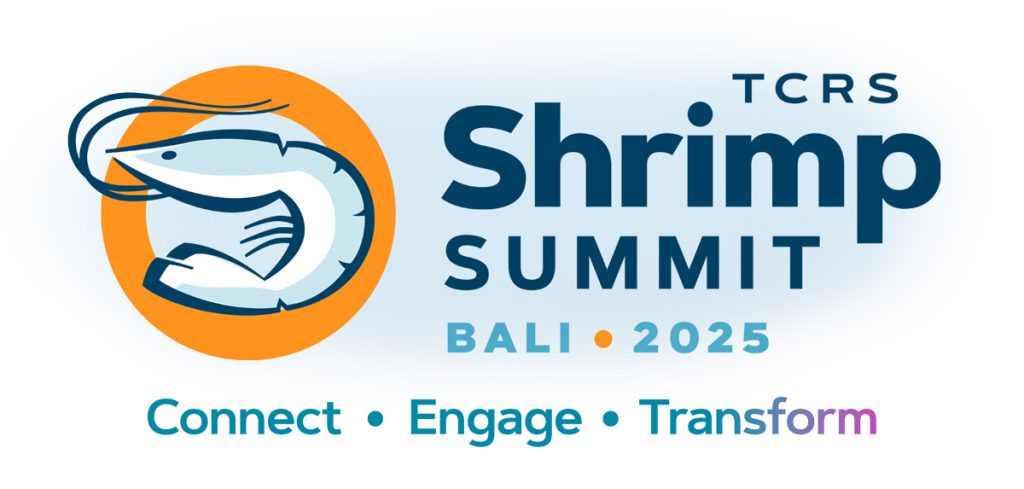
This session provided rapid snapshots of a wide variety of exciting innovations that promise to impact the future of shrimp farming. These innovations included solutions to reduce disease impacts, improve the performance of hatcheries and farms, and introduce much-needed automation in processing plants. Attendees actively participated by voting for the most compelling innovations, making this an engaging and forward-looking session.
The three most-promising innovations, as voted by attendees:
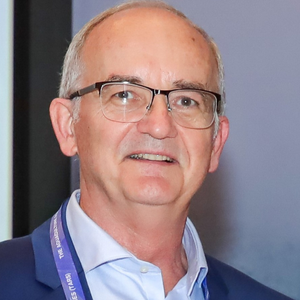
Regis BADOR is a true pioneer in shrimp aquaculture and a lifelong innovator in the field. His journey began in 1983 as a member of the AQUACOP Team at IFREMER in Tahiti, marking the start of his career dedicated entirely to shrimp.
After nine years with IFREMER and its development subsidiary France Aquaculture, he transitioned to the private sector, managing hatcheries and farms in Colombia and Madagascar. He was the founding scientific director of R&D CENIACUA in Colombia. For nine years, his expertise has since taken him to five continents, where he has worked as a consultant across the entire value chain—from broodstock and PL production to pond management, quality control, harvesting, and even shrimp tasting for an Asian restaurants supplier in France.
In 2001, he was hired in New Caledonia to lead the largest shrimp producer on the island, successfully steering its recovery plan over an 11-year tenure.
In 2012, he founded Innov’Aquaculture, dedicated to scouting, testing, developing and promoting cutting-edge technologies, products, and services for shrimp farming. His contributions include advancing the use of acoustic-based feeding management and playing a key role in the development of a digital platform for shrimp farmers.
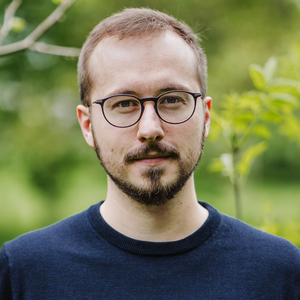
Ruben Props is co-founder and CEO of KYTOS group, a start-up and spin-off company hailing from Ghent University, Belgium. He holds a PhD in applied biological sciences from Ghent University where he developed new methodologies for the rapid characterization of microbiomes in natural and engineered aquatic environments. He received a grant from the Belgian American Educational Foundation (Sofina-Gustave Boël fellowship) to pursue PhD research at the University of Michigan (2016-2018) and was granted an FWO postdoctoral fellowship at Ghent University in 2018 to further develop technologies for aquatic microbial research.
Props is widely considered an expert in single-cell analysis technologies and is co-author of 40 A1 peer-reviewed articles on the topic. In 2021, he co-founded the spin-off KYTOS to make these research developments applicable to the aquaculture industry as a “full-service” platform. KYTOS is pioneering the frontier of microbiome management to empower sustainable and thriving food production through Integrated Microbiome Management (IMM) solutions. Today, KYTOS has local teams and operations in three countries, is servicing customers in more than 20 countries, and has processed more than 100,000 samples.
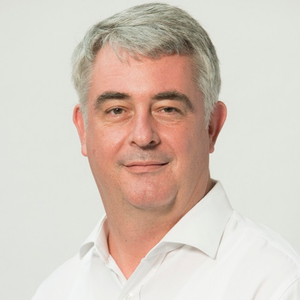
Rudi Bijnens is a senior aquaculture executive with over 30 years of leadership experience in live feed technologies and hatchery system innovation and currently serves as Global Sales & Marketing Director at I&V-Bio. His previous positions include leadership roles at INVE Aquaculture, including Regional Sales Director Asia, where he led commercial operations across diverse markets and helped pioneer advancements in artemia enrichment and application. Rudi is fluent in both the commercial and technical aspects of aquaculture and brings high-level insights on emerging trends in hatchery management, biosecurity, and the future of live feeds in precision aquaculture.
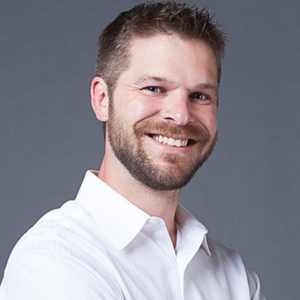
Robert Roulston founded Industrial Plankton, a Canadian company established in 2010 to develop live algae production systems for aquaculture hatcheries worldwide. He holds a BSc in Biology from McGill University and a BEng in Mechanical Engineering from the University of Victoria. A lifelong passion for aquatic organisms and experience in industrial automation led Robert to identify a major bottleneck in aquaculture: the reliable production of high-quality live algae.
Under his leadership, Industrial Plankton has developed user-friendly, biosecure photobioreactors that enable hatcheries to produce live algae consistently and efficiently. Used in 35 countries, these systems complement both batch and continuous culture methods, while eliminating much of the tedious, error-prone work traditionally required. This versatility has made them especially valuable for shrimp hatcheries, where simplifying algae production helps stabilize the base of the aquacultured food chain and supports the growth of sustainable global seafood production. Robert is also an avid marine aquarist and remains deeply committed to advancing aquaculture technology.
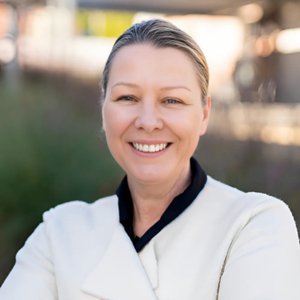
Dr. Annette Kleiser has over 25 years of experience in leadership, business development, start-up formation, and corporate strategy within the biotechnology industry. She studied biology at the University of Konstanz and earned her Ph.D. from Ludwig Maximilian University in Munich. In 2018, she founded Dalan Animal Health, a company focused on pioneering disease prevention in underserved production animals such as shrimp and honeybees. Under her leadership, Dalan successfully developed the world’s first USDA-approved vaccine for an insect — protecting honeybees against American Foulbrood disease.
Building on this success, Annette and her team have now made a major breakthrough in aquaculture using Dalan’s proprietary vaccine platform for the development of vaccines shrimp, long thought impossible to vaccinate.
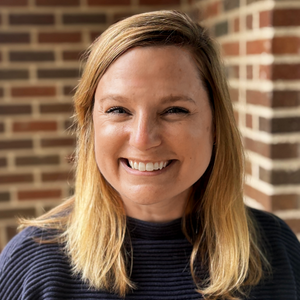
Emily serves as the Brand Manager for ShrimpWorks by Nova-Tech Engineering. After earning her bachelor’s degree in marketing from the University of Minnesota – Duluth, she began her career in poultry meat marketing before moving into the aquaculture processing industry.
Backed by Nova-Tech Engineering’s 30+ year experience innovating in poultry hatchery automation—spanning 69 countries—Emily played a key role in the 2022 commercial launch of ShrimpWorks, an all-in-one processing platform designed to reduce labor and enhance efficiency in shrimp production.
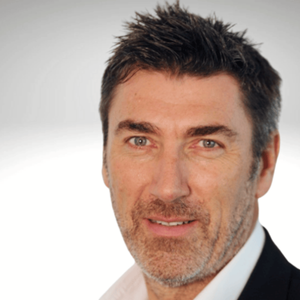
Fabrice De Panthou is a chemical engineer and a Ph.D. in science by education. He used to work about 20 years in different industries, pharmaceutical industry, Flavors and Fragrances, Cosmetics. Fabrice has always been the scientific person in contact with the market and customers. He used to scale-up organic processes, to manage a production plant, to develop innovative technologies for organic chemistry, to manage global innovation teams and to develop business relationships for different industries. Since 2015, he started his own innovation and business strategy consultancy company and started at Inalve in 2018, in charge of international business development.
Inalve is a French based company producing fresh and living microalgae concentrates for aquaculture and particularly for larval stages in aquaculture. Fabrice is developing the business and market understanding for fish, shrimp, and bivalves.
Fabrice is going to share some technical information about tests made recently on shrimp larvae and explain about the benefits expected for shrimp industry.
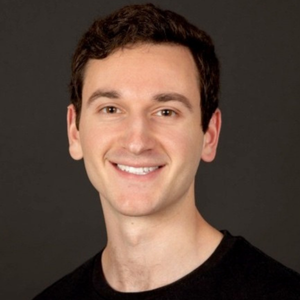
Mathew Mitchell is an MD candidate, Fulbright Scholar, and Co‑Founder/CTO of Organicin Scientific, a biopharma startup replacing broad‑spectrum antibiotics with precision antimicrobial proteins called bacteriocins. Equipped with a B.S. in Biochemistry & Molecular Biology from UMass Amherst and an M.S. in Physiology & Biophysics from Georgetown, he leverages computational advancements to precipitate molecular insights for translational innovation.
Mathew steered Organicin to the UN FAO World Food Forum where it received the “Better Environment” award for their bacteriocin‑driven approach to sustainable agriculture. Under his technical leadership, Organicin developed a bacteriocin‑infused shrimp‑feed additive which lifted survival in AHPND‑challenged shrimp populations by up to 165 % – without bioaccumulation of undesirable residues or antibiotic resistance.
He also architected BacPred, an orthogonal eight‑axis machine‑learning pipeline that predicts peptide characteristics and spectrum of activity—compressing antimicrobial discovery cycles from years to weeks and facilitating Organicin’s expanding therapeutics pipeline.